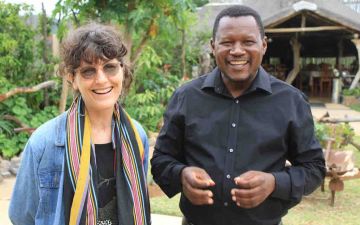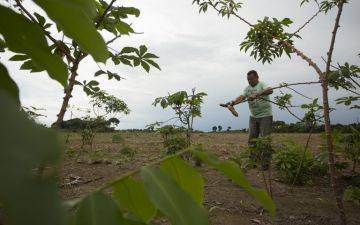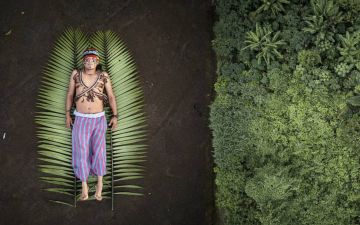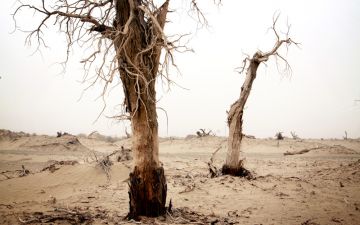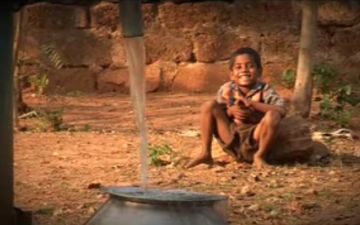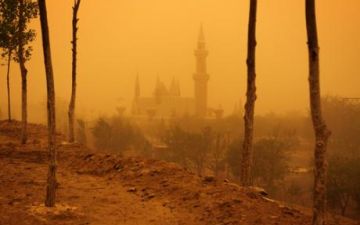Earth's average temperature has risen approximately one degree Fahrenheit in the last 50 years. By the end of this century, it will be several degrees higher, according to the latest climate research.
But global warming is doing more than simply making things a little warmer. It's changing rainfall, causing heat waves, and making sea level rise, all of which create human suffering.
Environment and Climate Change brings together reporting from Pulitzer Center grantees on the abilities of communities in diverse regions to bounce back and adapt to the impacts of climate change: One highlight includes in-depth reporting by Nathaniel Rich on the response to global warming during the 1979-1989 decade—an article that takes up the entire issue of The New York Times Magazine. Our journalists investigate climate change in the Arctic—the effects on indigenous communities, the destruction of the fragile natural environment, and the conflict between humans and polar bears. One interactive, award-winning multimedia project, "Sea Change," looks at ocean acidification, its impact on fishing, people's livelihoods, and food security. The documentary "Easy Like Water" features a solar-powered school boat in Bangladesh, where flooding may create 20 million "climate refugees" by mid-century.
Other stories covered here range from the future of the residents of Kiribati, a low-lying island nation in the Pacific, to the biological diversity of the rainforest in Peru, and the psychological effects of climate change on the inhabitants of Australia and Fiji. How does the melting Arctic ice cap affect our lives? How do overfishing and exploitation of mineral resources beneath the ocean’s surface jeopardize food sources need to sustain the planet’s ever-expanding population?
As part of the Pulitzer Center's long-term support for climate change reporting, the Rainforest Journalism Fund was established to provide capacity for local journalists operating in the rainforest regions of Latin America, Africa, and Asia, as well as international journalists reporting from those regions. The Fund represents a major investment in global environmental and climate reporting, with plans to support nearly 200 original reporting projects along with annual regional conferences designed to raise the level of reporting on global rainforest issues such as deforestation and climate change.



